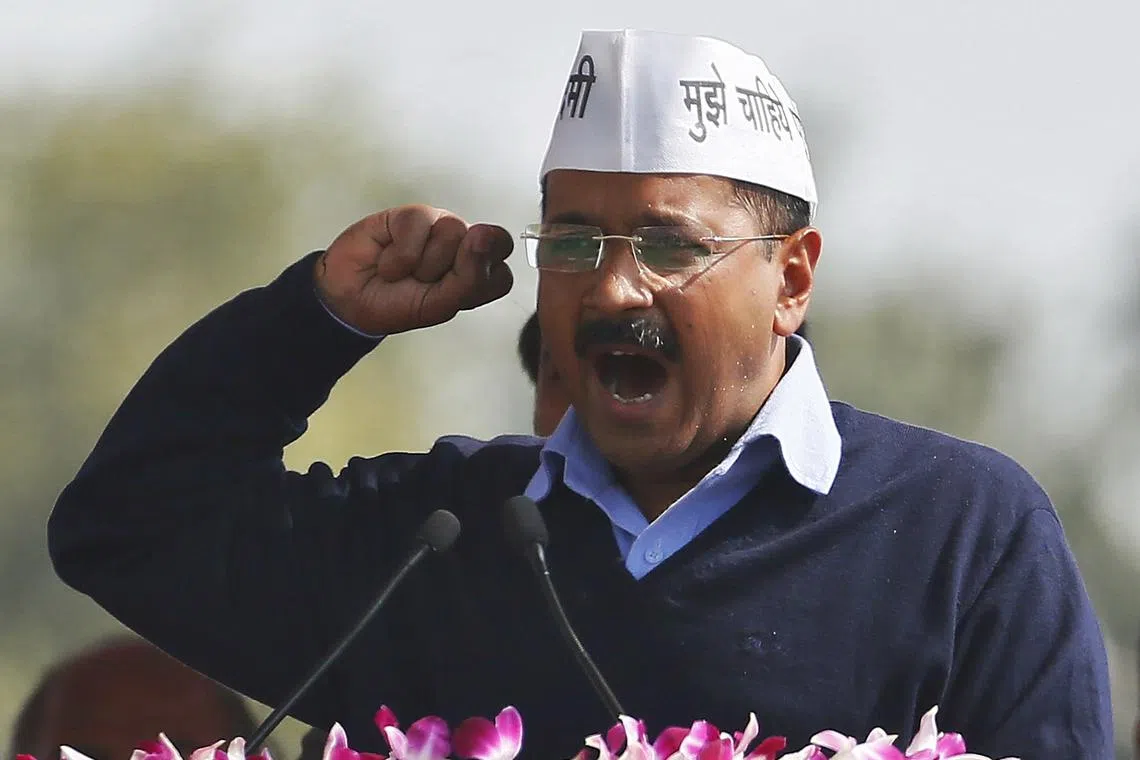India summons US diplomat after remarks on arrest of Delhi chief minister Arvind Kejriwal
Sign up now: Get insights on Asia's fast-moving developments

The US State Department had urged India to ensure a “fair, transparent, and timely legal process” for Arvind Kejriwal, chief minister of the capital Delhi.
PHOTO: REUTERS
NEW DELHI - India on March 27 summoned a top United States diplomat after Washington said it was “closely watching” events following the arrest of a senior opposition leader weeks ahead of parliamentary elections.
The US State Department had urged India to ensure a “fair, transparent, and timely legal process” for Arvind Kejriwal, chief minister of the capital Delhi, who was arrested last week
“We take strong objection to the remarks,” India’s foreign ministry said in a statement. “In diplomacy, states are expected to be respectful of the sovereignty and internal affairs of others”.
Local broadcasters showed the senior US diplomat Gloria Berbena entering India’s foreign ministry. There was no immediate response from the US embassy.
Last week, Germany raised its concerns about the arrest of Kejriwal, a key leader in an opposition alliance formed to compete against Prime Minister Narendra Modi in elections beginning in April.
The foreign ministry said it had also summoned Germany’s deputy ambassador on March 23.
Kejriwal’s government is accused of receiving kickbacks while handing out liquor licenses to private companies.
He has denied the charges, and supporters say his arrest is meant to sideline challengers to Mr Modi before April’s election – accusations the foreign ministry rejected.
“India’s legal processes are based on an independent judiciary which is committed to objective and timely outcomes,” it added.
India’s main financial investigation agency, the Enforcement Directorate (ED), which arrested Kejriwal, has launched probes into at least four other state chief ministers or their family members.
Critics have accused Mr Modi of politicising India’s justice system.
Nearly a billion Indians will vote to elect a new government in six-week-long parliamentary elections starting on April 19, the largest democratic exercise in the world.
Many analysts see Mr Modi’s re-election as a foregone conclusion, partly due to the resonance of his assertive Hindu-nationalist politics with members of the country’s majority faith. AFP


